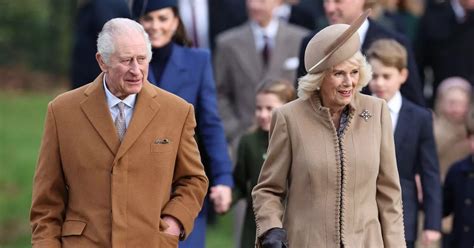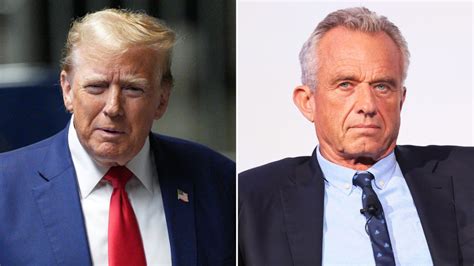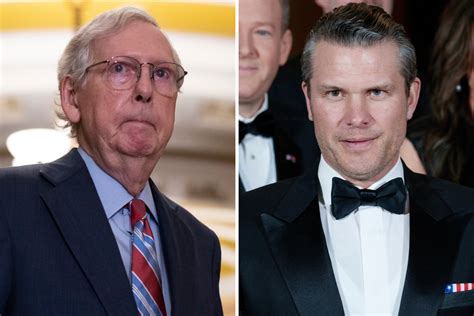
King Charles III is poised to modernize the monarchy, diverging from established royal traditions in an effort to reflect contemporary values and streamline the institution, according to royal experts and commentators. This marks a significant departure from the practices of his predecessors, particularly his mother, Queen Elizabeth II, who was known for her steadfast adherence to tradition.
King Charles III’s vision for the monarchy involves a more accessible and relatable royal family, a focus on relevant social issues, and a reduction in the cost to the public. This shift is already evident in several key areas, including his approach to royal residences, his advocacy for environmental causes, and his willingness to engage with diverse communities.
One of the most notable changes under King Charles III is the potential repurposing of several royal residences. “King Charles wants to breathe new life into the royal properties,” according to royal sources. This could involve opening some of the residences to the public for longer periods, converting others into museums or galleries, or even using them to house community organizations or charities. This contrasts with the traditional use of these properties as private retreats for the royal family.
Another area where King Charles III is forging his own path is in his advocacy for environmental causes. He has been a vocal proponent of sustainable practices and climate action for decades, and he is expected to use his platform as king to amplify these messages. This includes promoting renewable energy, supporting conservation efforts, and encouraging responsible land management. His dedication to environmental issues aligns with the growing global awareness of climate change and the need for urgent action.
Furthermore, King Charles III is expected to continue his efforts to engage with diverse communities and promote social inclusion. He has a long history of working with charities and organizations that support marginalized groups, and he is committed to using his position to promote equality and opportunity for all. This includes addressing issues such as poverty, homelessness, and discrimination. His commitment to social causes reflects a broader shift in societal values and expectations.
The decision to deviate from royal tradition is not without its challenges. Some critics argue that it could undermine the mystique and authority of the monarchy. Others express concern that it could alienate traditionalists who value the historical continuity of the institution. However, supporters of King Charles III argue that it is necessary to adapt to changing times and ensure the long-term relevance of the monarchy.
Ultimately, the success of King Charles III’s efforts to modernize the monarchy will depend on his ability to balance tradition with innovation, maintain public support, and effectively address the challenges facing the institution. His reign marks a new chapter in the history of the British monarchy, and its outcome will have a significant impact on the future of the institution.
The move towards a more modern monarchy also includes a review of the roles and responsibilities of various members of the royal family. There are suggestions that King Charles III aims to streamline the number of working royals, focusing on those who are most actively engaged in public duties and charitable work. This would likely involve reducing the financial burden on the public purse and ensuring that the royal family is seen as efficient and effective in its operations.
Furthermore, King Charles III is expected to adopt a more informal style of communication and engagement with the public. This could involve using social media platforms to connect with people directly, holding more town hall-style meetings, and being more open and transparent about the activities of the royal family. This approach contrasts with the more formal and reserved style of communication that characterized the reign of Queen Elizabeth II.
One of the key challenges facing King Charles III is maintaining the unity and cohesion of the Commonwealth. As head of the Commonwealth, he plays a vital role in fostering relationships between member states and promoting cooperation on issues of mutual concern. However, there are growing calls for reform within the Commonwealth, particularly regarding issues of colonialism and historical injustices. King Charles III will need to navigate these complex issues carefully to ensure the continued relevance and effectiveness of the organization.
Another challenge is managing the public perception of the royal family. The monarchy has faced criticism in recent years over issues such as its wealth, its privilege, and its handling of scandals. King Charles III will need to address these concerns directly and demonstrate that the royal family is committed to serving the public interest. This includes being accountable for its actions and transparent about its finances.
Despite these challenges, King Charles III has the opportunity to shape the monarchy for the 21st century and ensure its long-term survival. By embracing innovation, engaging with diverse communities, and focusing on relevant social issues, he can make the monarchy a force for good in the world. His reign marks a new era for the British monarchy, and its success will depend on his vision, his leadership, and his ability to connect with the people he serves.
The restructuring may include a shift in the patronage of various charities and organizations. King Charles, known for his long-standing commitment to sustainability and environmental causes, is expected to prioritize these areas in his royal duties. This could mean redirecting royal support and resources towards initiatives that promote environmental protection, conservation, and sustainable development. This move aligns with global efforts to address climate change and promote a more sustainable future.
In addition to environmental causes, King Charles III is also expected to continue his support for initiatives that promote social inclusion and community development. He has a long history of working with organizations that support marginalized groups, and he is committed to using his position to promote equality and opportunity for all. This includes addressing issues such as poverty, homelessness, and discrimination. His commitment to social causes reflects a broader shift in societal values and expectations.
The financial aspects of the monarchy are also likely to undergo scrutiny and reform under King Charles III. There is growing public pressure for greater transparency and accountability regarding the royal family’s finances, and King Charles III is expected to address these concerns directly. This could involve making more information available about the Sovereign Grant, the income the royal family receives from the government, and the Duchy of Cornwall, a private estate that provides income to the heir to the throne.
Furthermore, King Charles III may seek to reduce the cost of the monarchy to the public purse by streamlining its operations and reducing unnecessary expenses. This could involve cutting back on the number of royal engagements, reducing the size of the royal household, and finding ways to generate more revenue from royal assets. These measures would help to ensure that the monarchy is seen as efficient and effective in its use of public funds.
The transition to a new monarch also presents an opportunity to review the role of the monarchy in British society. There is ongoing debate about the monarchy’s place in a modern democracy, and King Charles III is expected to engage with these discussions openly and constructively. This could involve exploring options for constitutional reform, such as reducing the powers of the monarch or changing the rules of succession.
Ultimately, the future of the monarchy will depend on its ability to adapt to changing times and remain relevant to the lives of ordinary people. By embracing innovation, engaging with diverse communities, and focusing on relevant social issues, King Charles III can ensure that the monarchy continues to play a vital role in British society for generations to come. His reign marks a new era for the British monarchy, and its success will depend on his vision, his leadership, and his ability to connect with the people he serves.
The shift in approach also extends to the royal family’s engagement with the media. While Queen Elizabeth II maintained a more reserved and formal relationship with the press, King Charles III is expected to adopt a more open and transparent approach. This could involve giving more interviews, holding regular press conferences, and using social media platforms to communicate directly with the public.
However, this increased openness also carries risks. The royal family has faced intense scrutiny from the media in recent years, and King Charles III will need to manage this carefully to protect the privacy of his family and avoid unnecessary controversy. He will also need to be mindful of the potential for misinterpretation and distortion of his words.
Despite these challenges, King Charles III believes that greater transparency is essential for building trust and maintaining public support. He recognizes that the monarchy must be accountable for its actions and responsive to the concerns of the public. By engaging with the media in a more open and transparent way, he hopes to foster a more informed and balanced understanding of the royal family’s role in British society.
The restructuring of the monarchy under King Charles III also has implications for the other members of the royal family. Some members may see their roles and responsibilities reduced, while others may be given new opportunities to contribute to public life. This could lead to tensions and conflicts within the royal family, as different members vie for influence and recognition.
However, King Charles III is committed to working with all members of the royal family to ensure that they are able to fulfill their potential and contribute to the success of the monarchy. He recognizes that the royal family is a team, and that its success depends on the cooperation and collaboration of all its members. By fostering a spirit of unity and mutual respect, he hopes to create a harmonious and effective royal family that is able to serve the public with dedication and distinction.
The modernization efforts also come at a time when the monarchy faces increasing scrutiny regarding its historical ties to colonialism and slavery. King Charles III is expected to address these issues directly and acknowledge the pain and suffering caused by these historical injustices. This could involve issuing formal apologies, supporting reparations initiatives, and working to promote reconciliation and healing.
By confronting these difficult issues head-on, King Charles III can demonstrate that the monarchy is committed to learning from the past and building a more just and equitable future. He can also help to foster a more honest and accurate understanding of British history and its impact on the world. This would be a significant step towards rebuilding trust and strengthening relationships with communities that have been affected by colonialism and slavery.
The long-term impact of King Charles III’s reforms remains to be seen. However, his efforts to modernize the monarchy represent a significant departure from the past and a bold vision for the future. By embracing innovation, engaging with diverse communities, and focusing on relevant social issues, he is seeking to ensure that the monarchy remains a vital and relevant institution in the 21st century. His reign marks a new era for the British monarchy, and its success will depend on his vision, his leadership, and his ability to connect with the people he serves.
Furthermore, the King’s approach to the Commonwealth is anticipated to evolve. While maintaining its importance, he’s likely to foster a more equitable and collaborative environment among member nations, acknowledging historical complexities and promoting shared goals. This could involve addressing historical grievances, promoting economic development, and working together to combat climate change and other global challenges. His vision is to transform the Commonwealth into a more inclusive and effective organization that benefits all its members.
The King’s known interest in interfaith dialogue is also expected to shape his reign. He’s likely to promote understanding and cooperation between different religious communities, fostering a more tolerant and inclusive society. This could involve hosting interfaith events, supporting interfaith initiatives, and speaking out against religious discrimination and intolerance. His commitment to interfaith dialogue reflects his belief that people of all faiths can work together to build a better world.
In addition to these specific areas, King Charles III is also expected to bring a more personal and human touch to the monarchy. He is known for his warmth, his empathy, and his sense of humor, and he is likely to use these qualities to connect with people from all walks of life. This could involve sharing more personal stories, expressing his emotions more openly, and engaging with the public in a more informal and accessible way. His aim is to make the monarchy more relatable and approachable, fostering a stronger sense of connection between the royal family and the people they serve.
The King’s commitment to the arts and culture is also expected to play a significant role in his reign. He is a passionate advocate for the arts, and he is likely to use his position to promote creativity, innovation, and cultural exchange. This could involve supporting artists and cultural organizations, hosting cultural events, and advocating for greater investment in the arts. His belief is that the arts play a vital role in enriching society and fostering a sense of community.
The streamlining of royal operations may also lead to a reassessment of the Crown Jewels and other royal treasures. King Charles III may consider putting some of these items on public display more frequently, allowing more people to appreciate their historical and cultural significance. This could involve loaning items to museums and galleries, creating traveling exhibitions, and using digital technology to make the treasures more accessible online. His goal is to share the royal collection with the world, fostering a greater understanding of British history and culture.
The King’s passion for organic farming and sustainable agriculture is also expected to influence his approach to the royal estates. He is likely to promote sustainable farming practices, reduce the use of pesticides and fertilizers, and encourage biodiversity on royal lands. This could involve converting more land to organic farming, supporting local farmers and producers, and promoting sustainable food systems. His commitment to sustainable agriculture reflects his belief that we must protect our environment and ensure a healthy food supply for future generations.
Finally, King Charles III’s reign is expected to be characterized by a strong sense of duty and service. He has dedicated his life to public service, and he is committed to continuing this tradition as king. He is likely to work tirelessly to promote the interests of the United Kingdom, the Commonwealth, and the world. His aim is to be a unifying force, a symbol of stability, and a champion of the values that he holds dear. His reign marks a new chapter in the history of the British monarchy, and its success will depend on his vision, his leadership, and his unwavering commitment to serving the people he represents.
Frequently Asked Questions (FAQs)
1. What are the main changes King Charles III is expected to make to the monarchy?
King Charles III is expected to modernize the monarchy by streamlining operations, focusing on relevant social issues like environmental sustainability and social inclusion, potentially repurposing royal residences for public use, adopting a more informal style of communication, and addressing historical injustices linked to colonialism. He aims to make the monarchy more accessible, relatable, and reflective of contemporary values.
2. How is King Charles III’s approach different from that of Queen Elizabeth II?
Queen Elizabeth II was known for her steadfast adherence to tradition and a more reserved and formal style. King Charles III is expected to be more open to change, adopting a more informal communication style, actively advocating for social issues, and being more transparent about the monarchy’s activities and finances. He seeks to balance tradition with innovation to ensure the monarchy’s long-term relevance.
3. What challenges does King Charles III face in modernizing the monarchy?
King Charles III faces several challenges, including managing public perception, maintaining the unity of the Commonwealth, addressing historical ties to colonialism and slavery, navigating potential tensions within the royal family, and balancing tradition with innovation. He must also ensure financial transparency and accountability while maintaining public support.
4. How might King Charles III repurpose royal residences, and what is the reasoning behind it?
King Charles III may repurpose royal residences by opening them to the public for longer periods, converting them into museums or galleries, or using them to house community organizations or charities. The reasoning behind this is to breathe new life into the royal properties, make them more accessible to the public, and demonstrate a commitment to community engagement and social responsibility.
5. What are King Charles III’s key priorities regarding environmental and social issues?
King Charles III is expected to prioritize environmental sustainability and social inclusion. This includes advocating for renewable energy, supporting conservation efforts, promoting responsible land management, addressing issues such as poverty, homelessness, and discrimination, and working with organizations that support marginalized groups. His commitment to these issues reflects a broader shift in societal values and expectations.









